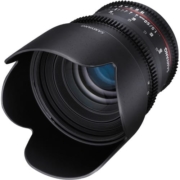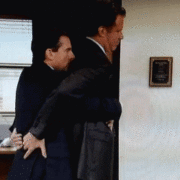Production Department – Unsung Heroes of Filmmaking
The production department is your lifeblood to any production. The word PRODUCTION is literally in the name. As the production, it’s their job to build the team, make sure everyone stays safe and alive, spread information, and maintain the production throughout the entirety of the filmmaking process – and obviously so much more.
The production department is essential to any film crew. They are the oil between the figurative gears that keeps the whole production moving. It doesn’t matter the size of the production; even small shoots need some form of production coordination. This vital department ensures your production stays afloat and running smoothly. So, let’s see what roles are behind the smoke and mirrors of the production department, and take a closer look at their key responsibilities.
(Can you spot the mirror?)
The production crew consists mainly of a Unit Production Manager, Production Coordinator, Production Assistants, and (with larger productions) Assistants to Directors and Producers. These are a few of the key roles that are responsible for organization, preparation, coordinating and maintaining talent, producers, directors, and financiers. So, let’s take a closer look at each of these roles.
PRODUCTION MANAGER
The role of a production manager is all encompassing. It’s built for Go-Getters. Production managers ensure the production runs essentially for the line producer and producer. It’s the production manager’s job to orchestrate their responsibilities to make sure the production is completed in the best, most economical way. In pre-production, the production manager must also go through the script with the First Assistant Director, Producers, Line Producers page by page to break it down. After they go through the script, they will reach out to the Department Heads to determine their budgets as well as salaries for the project. They will also manage all rentals, supplies, and additional equipment.
(To All You Go-Getters)
Other responsibilities include overseeing all production paperwork while also working with all personnel to make sure everyone’s playing nice. At the end of production, the Production Manager will also need to make sure equipment and rentals are returned, invoices fulfilled, and any loose ends of that nature. Never lose sight of a good production manager, because they are worth more than gold.
If your skill set includes amazing communication skills, then this job is for you! This job will keep you on your toes, putting out fires left, right, up and down. So, it’s even better if you have a high tolerance for difficult situations. This is a job that involves you on your phone all day, and on bigger productions you will probably be in the office the entire time.
PRODUCTION COORDINATOR
The Production Coordinator answers to the Production Manager and Line Producer. Their job from pre-production to wrap can be very taxing. This job is built for good team players and the highly computer literate. It’s the Production Coordinator who also negotiates Copyrighted materials, assisting with daily financial dealings, and be prepared to assess risks in the workplace.
(You will be glued to your phone. Seriously.)
In pre-production the Production Coordinators are in charge of setting up the Production Office and making sure equipment and supplies are ordered. This also includes obtaining and filing paperwork related to insurance cover for rental cars to office equipment. Production Coordinators must also make the proper arrangements to move props and costumes along with other key equipment. They will also ensure shooting schedules are distributed as well as cast and crew lists, and script revisions. In production, Production Coordinators will also make sure transportation is communicated to the proper channels. And say the production is working with film, the Production Coordinator must organize a way to have the film shipped and received for dailies.
To put it simply, the Production Coordinator needs to be a master of organization. It doesn’t hurt to have a Masters in multi-tasking as well. It’s also important to have a decent understanding of the filmmaking process and a strong command of the different stages of production.
PRODUCTION ASSISTANT
You always hear how working as a Production Assistant is a gateway into the industry. It’s the starting point that can lead to any number of departments, but understanding the filmmaking process always seems to start with the PA position. It’s not an easy job and it’s often thankless, but the mighty PA is an essential factor to any production.
PAs are used in any and every way. Sometimes for the better, and more times for the worst. But that said, it really is a great way to learn the ins and outs of the industry. There are typically office PAs and on set PAs. The best feature for PAs to have is the willingness to learn while on set. It’s important to put the phone down and take a look at the different departments to find a path into the industry.
The tasks of the PA can range from working with crowds to assisting with Extras and even cleaning up the locations. On set can be extremely stressful and PAs must be able to take orders, while keeping an even temper and maintaining a positive attitude.
LOCATION MANAGER
The Location Manager is responsible for the locations from point A to B. That means the Location Manager gets together with the Director to understand a common vision so they can find the most ideal location. The greatest challenge for the Location Manager is finding a location that meets all the criteria while also keeping to a specified budget.
(Still searching…)
A Location Manager needs to be a gifted negotiator and have an ability to work with paperwork and permits. The Location Manager works with the location owner to determine location rules, crew and talent access, parking situation, noise reduction and anything else that deals with the location.
The Location Manager is also responsible for being the first on location and the last to leave while ensuring the rules of the location are met and the location is left in the same condition it was when entered. Location Managers also make the arrangements for parking facilities, catering requirements, available power sources, and alerting the appropriate authorities if necessary.
UNIT MANAGER
The Unit Manager works closely with the Location Manager. The Unit Manager is usually the one who handles the impossible situations. This includes handling upset tenants or neighbors if, say, a generator is running loud at night. It’s the Unit Manager’s job to calm the upset party down while filming continues. The Unit Manager is also responsible for handling the parking situation at the locations, while igniting a positive relationship with location owners and landlords. During pre-production the Unit Manager accompanies all Heads of Departments to the locations to determine the needs and rules. This is a great opportunity for the Unit Manager to meet with owners and take technical notes of the property. This can be a pretty demanding job, especially physically. Unit Managers are also in charge of disposing of trash, maintaining the Honey Wagons, and parking vehicles. In fact, it’s very important to be comfortable behind the wheel.
During pre-production the Unit Manager accompanies all Heads of Departments to the locations to determine the needs and rules. This is a great opportunity for the Unit Manager to meet with owners and take technical notes of the property. This can be a pretty demanding job, especially physically. Unit Managers are also in charge of disposing of trash, maintaining the Honey Wagons, and parking vehicles. In fact, it’s very important to be comfortable behind the wheel.
CATERING CREW
The Catering Crew is essential to the overall mood and tempo of production. Unless you want a mutiny on your hands, or at the very least, an unhappy crew, it’s important to have good catering. Typically, catering is hired as an outside company by the Production Manager to provide breakfast, lunch, and dinner to the crew. Catering also can provide snacks and additional meals if production runs into additional hours.
Catering is also determined by a specified budget and samples of the menus for the production. The hours, like most, are long and demanding.
TRANSPORTATION DEPARTMENT
The Transportation Department is important because they are the unsung heroes who ensure the cast, crew, and equipment make it to location safe and sound. It’s their responsibility to load and transport between locations. This means working with complex itineraries, potentially working with travel permits, and allocate vehicles like the Production Office, Honey Wagons, and Artist caravans. Time is of the essence while working with the Transportation Department.
 Once I had a driver tell me he shows up two hours early to work and sleeps in his car until his time to start. His reasoning was it was better to be early and sleep in his car rather than get held up in traffic and be late. That same driver knew every road and highway in LA and knew every clearance of every bridge. Another piece of advice he said was never take a chance, no matter what it is. It’s better to stop and look and piss people off rather than take a chance and damage property. Sound advice.
Once I had a driver tell me he shows up two hours early to work and sleeps in his car until his time to start. His reasoning was it was better to be early and sleep in his car rather than get held up in traffic and be late. That same driver knew every road and highway in LA and knew every clearance of every bridge. Another piece of advice he said was never take a chance, no matter what it is. It’s better to stop and look and piss people off rather than take a chance and damage property. Sound advice.
The Production Department is often considered the supply line of every production. A good one will thrive and flourish, and a poor one could leave the production susceptible to failure. Knowing and understanding the key roles of the Production Department is imperative to working effectively in the industry. All hail to the Production Department for keeping us all glued together!













